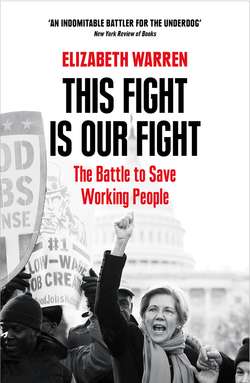Читать книгу This Fight is Our Fight: The Battle to Save Working People - Elizabeth Warren - Страница 19
BREAK ’EM UP: ROUND TWO
ОглавлениеStabilizing the banking industry was just the start of Roosevelt’s effort to build a stronger, more stable economy. He also used the tools of antitrust law to roll back the concentration of corporate power in other industries. He was determined to block giant companies that were smothering their smaller competitors—not by offering better products or lower costs, but by using shady practices that stopped competition before it started.
After he got the banking laws in place and operational, Roosevelt brought in Thurman Arnold, a man often described as a maverick lawyer, to head the Justice Department’s Antitrust Division. Fiercely independent, Arnold was widely respected for the power of his intellect and the force of his character. The turnaround was immediate. In short order, the division grew from eighteen lawyers to five hundred, and investigations—and lawsuits—ramped up. In just five years under new leadership, those attorneys filed almost as many cases as there had been in the previous quarter century. Arnold said his approach was “to hit hard, hit everyone and hit them all at once.” From fertilizer to newspapers to motion pictures, from shoes to tobacco to petroleum, monopolies and collusive dealings had taken root in one industry after another—and now the government was breaking up these huge corporations and shutting down their predatory practices.
Industry CEOs were shocked—shocked—that a previously complacent government would call them out, and they responded with fury and fulmination when some mere government official tried to apply laws already on the books to halt aggressive and dangerous business practices. In fact, some of these CEOs were so outraged that they fought all the way to the Supreme Court of the United States, confident that those troublesome government officials would be slapped back.
This shift in approach—from markets where the rule of the day was pretty much “anything goes” to markets that had tough cops enforcing strict laws—reflected a tectonic shift in American law and the American economy. By the 1930s, the idea began to take root that without basic rules, markets won’t work. Government—the people working together—could pass strong laws and enforce those laws to level the playing field; this, in turn, would give consumers, investors, shopkeepers, and small farmers a fighting chance to build their own economic futures.
